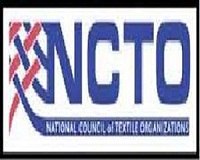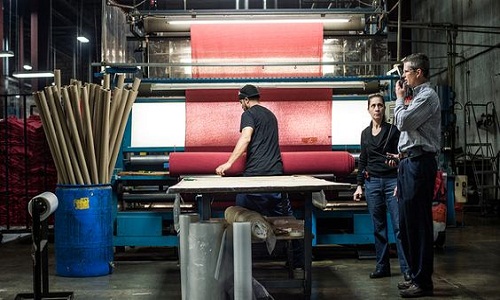"The outgoing chairman of National Council of Textile Organizations (NCTO), a Washington, DC-based trade association that represents domestic textile manufacturers, William V ‘Bill’ McCrary Jr. delivered the trade association’s 2018 State of the US Textile Industry overview at NCTO’s 15th Annual Meeting on March 22. He highlighted the US President Trump’s pro-manufacturing agenda is forcing Washington to do what NCTO has long sought – rethink policies on trade, taxation, regulatory reform and a host of other issues. He asserted that the time for change is now and NCTO is committed to working with the Trump administration to achieve the best policy outcomes on these and other issues."

The outgoing chairman of National Council of Textile Organizations (NCTO), a Washington, DC-based trade association that represents domestic textile manufacturers, William V ‘Bill’ McCrary Jr. delivered the trade association’s 2018 State of the US Textile Industry overview at NCTO’s 15th Annual Meeting on March 22. He highlighted the US President Trump’s pro-manufacturing agenda is forcing Washington to do what NCTO has long sought – rethink policies on trade, taxation, regulatory reform and a host of other issues. He asserted that the time for change is now and NCTO is committed to working with the Trump administration to achieve the best policy outcomes on these and other issues.
Fact file

In 2017, the value of US man-made fibre and filament, textile, and apparel shipments was an estimated $77.9 billion. US exports of fibre, yarns, fabrics, made-ups, and apparel were $28.6 billion in 2017. This is nearly a nine per cent increase in export performance over 2016. Shipments to NAFTA and CAFTA-DR countries accounted for 54 per cent of all US textile supply chain exports. The US is especially well-positioned globally in fibre, yarn, fabric, and non-apparel sewn products markets; it was the world’s 4th largest individual country exporter of those products in 2016. The US textile industry’s commitment to capital re-investment and a continued emphasis on quality and innovation make it well-positioned to adapt to market changes and take advantage of opportunities as 2018 moves along."
Policy matters
McCrary Jr said, for decades, US policy systematically undervalued the importance of domestic manufacturing, and President Trump is right that this has hurt America. NCTO endorses President Trump’s macro policy objectives of reshoring industry, fighting for free, but fair trade, enforcing US trade laws, making the US tax code more competitive, buying American, cutting unnecessary regulation, revitalising infrastructure, ensuring cheap energy, and fixing health care. On trade, NCTO agrees with President Trump that US trading relationships must be rooted in fairness and reciprocity to benefit a broad swath of American society.
America’s most important trading relationship is NAFTA, a pillar upon which the US-Western Hemisphere textile supply chain is built. At almost $12 billion combined, Mexico and Canada are the US textile industry’s largest export markets. Moreover, Mexico provides vital garment assembly capacity the United States lacks at this time. NAFTA’s yarn-forward rule of origin contains loopholes that benefit third-party countries, such as China. Closing them would boost US and NAFTA partner textile and apparel production and jobs.
Priority areas
NCTO urges continued support for the Advanced Functional Fabrics of America (AFFOA). This defense department-funded program is matched three to one with private dollars and tasked with making it easier to develop and commercialise the next generation of high-performance textiles. NCTO also calls for the US Government to invest in improving automation for garment assembly because this technology shows promising potential to reshore US textile and apparel production and jobs.
Another NCTO priority is ensuring the US textile industry has uninterrupted access to reasonably priced energy. Most man-made fibres are derivatives of petroleum products and many textile producers are reliant on natural gas to power manufacturing operations. Noting this, NCTO supports construction of expanded oil & gas pipeline capacity to keep energy prices low. Finally, the US textile industry must acknowledge its workforce is aging, making the recruitment of new talent a priority. US companies must continue to forge links with local and state leaders, and educators to make sure government policy nurtures a labour pool both adequate in size and well prepared to succeed in a competitive global economy.
Future expanse
Although the US textile industry is world-class, it cannot afford to rest on its laurels. There will always be intense and sometimes unfair competition from abroad, changing consumer demands and inevitable economic downturns. Fortunately, the Trump administration wants to spur manufacturing output and jobs, and it is incumbent upon the US textile industry to seize this generational opportunity to usher in a new era of growth. With so much at stake, the chairman urged all members of NCTO to stay active in this indispensable association that is fighting to promote the interest of the industry in Washington.












